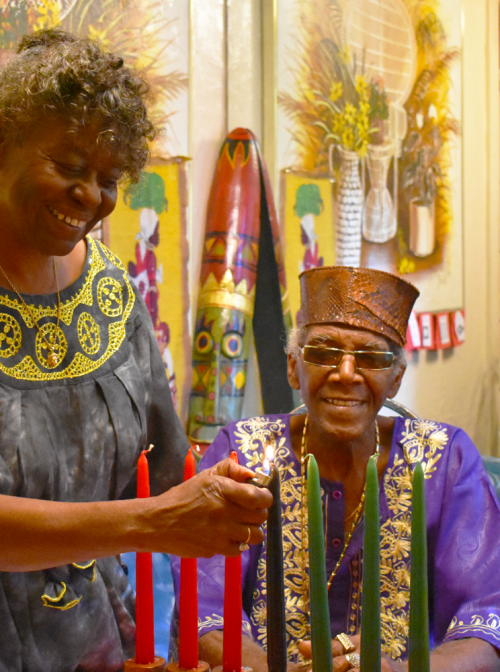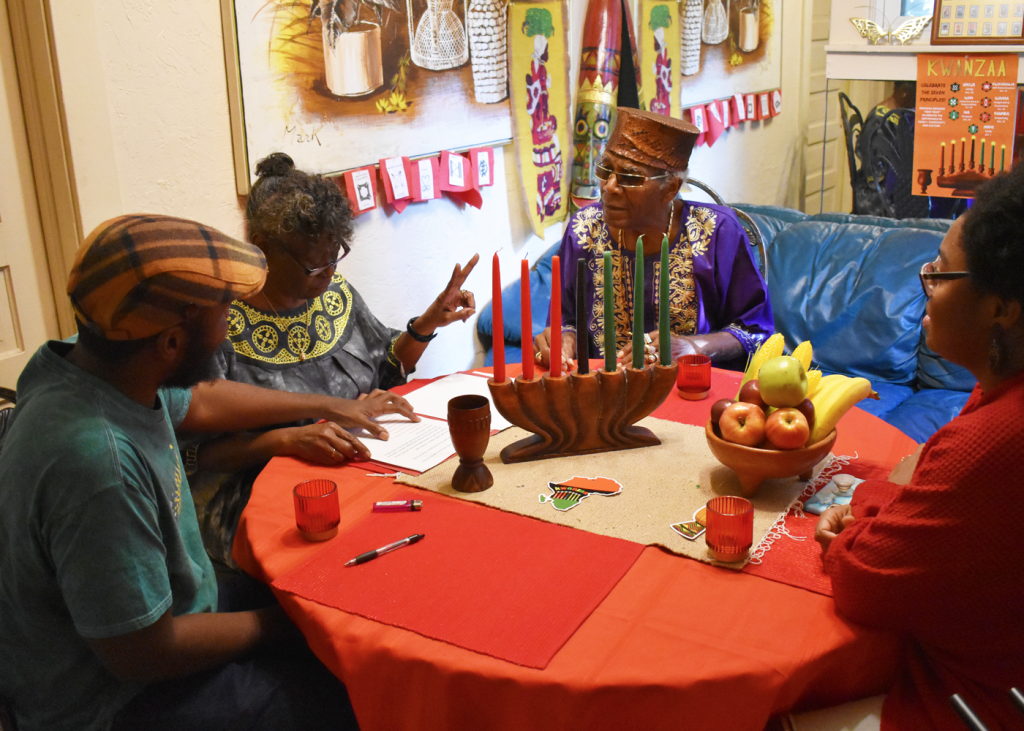Since childhood, I struggled to meet people familiar with my family’s cultural practice of Kwanzaa.
Many people, if they have heard of Kwanzaa, assume it’s religious or in competition with other holidays in the season. This was ironic since celebrating Kwanzaa as a child helped me feel connected to my family, history, and peers, like other holiday traditions.
Kwanzaa has been celebrated through the decades by my family, who seek connectedness and inclusivity.
This was part of my mom, Nancy’s, inspiration behind incorporating the holiday into our family’s traditions. She’s always felt like Kwanzaa would help us better understand and embrace our cultural heritage as Black Americans. I am forever grateful to my mom for bringing this holiday into our lives. I feel incredibly privileged to pass down my knowledge and understanding of something important.
In 2022, I was able to use the support I gained through Interfaith America’s Interfaith Innovation Fellows program to create Kwanzaa Days. This educational resource honors my family’s yearly celebration of Kwanzaa. I am delighted to share more about this resource.
What gives you happiness during your family traditions?
During Kwanzaa, it’s our family rituals, shared meals, and strengthened bonds.
Kwanzaa Days aims to get a front-row seat to how one family, my family, observes Kwanzaa from a modern perspective. It also hopes to increase one’s inclusive knowledge and mutual curiosity regarding a tradition recognized by Black Americans around the United States.
From Kwanzaa Days, “Kwanzaa spans seven days, from December 26 through January 1. This holiday helps Black Americans reflect on their history and purpose in the United States. An essential daily ritual is lighting the kinara, a candle holder featuring seven candles for each principle of Kwanzaa. Each principle has an English version and a Swahili version.”
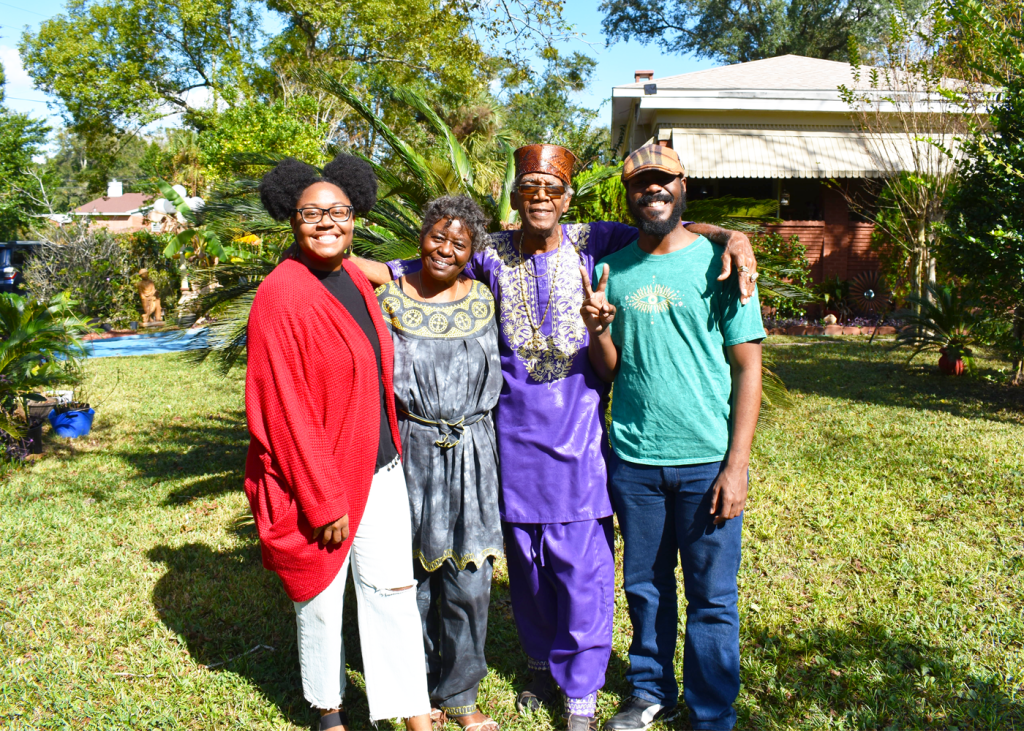
The seven principles are as follows:
- December 26 – Umoja (Unity): Standing together.
- December 27 – Kujichagulia (Self-Determination): Being true to yourself.
- December 28 – Ujima (Collective Work and Responsibility): Working together.
- December 29 – Ujamaa (Cooperative Economics): Sharing.
- December 30 – Nia (Purpose): Having a purpose or goal.
- December 31 – Kuumba (Creativity): Creating something.
- January 1 – Imani (Faith): Faith in yourself and your community; how we make meaning in our lives. This is also where the giant community feast takes place.
Preparing the home for this celebration is also extremely important. My family decorates for this time, displaying popular symbols related to Pan-African culture, such as harvest fruits, the colors of the Pan-African flag (red, black, and green), and artwork by Black creators that honor our history. A woven mat is essential because it symbolizes how we are woven together as a community and society.
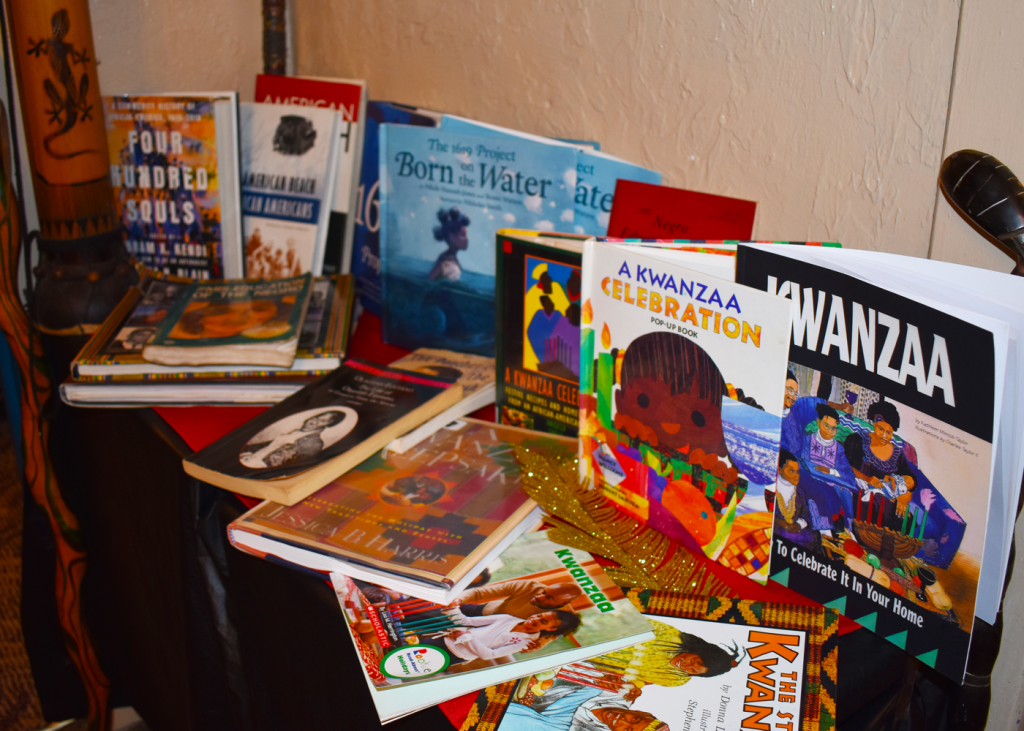
Yet the value of the seven principles of Kwanzaa lies in their potential for guiding and uplifting our daily actions and decisions. As a personal meditation or group focus, the principles can inspire expressions of universal human values.
– Gwynelle Dismukes
While the holiday exists to help Black people embrace their culture and history, it is not exclusive. Other cultures can join in, learn, and celebrate with Black folks during this reflective time.
My mom loves to end our daily ceremonies with an inspiring message to take into our future. One of my favorites is this: we dedicate ourselves to upholding the values of all the principles of Kwanzaa. As we reflect on the current year, we shall have faith in the future, our people, and ourselves that we may work to create a better world. May we hope for peace, prosperity, and harmony in what guides us towards our purpose in life and each other.
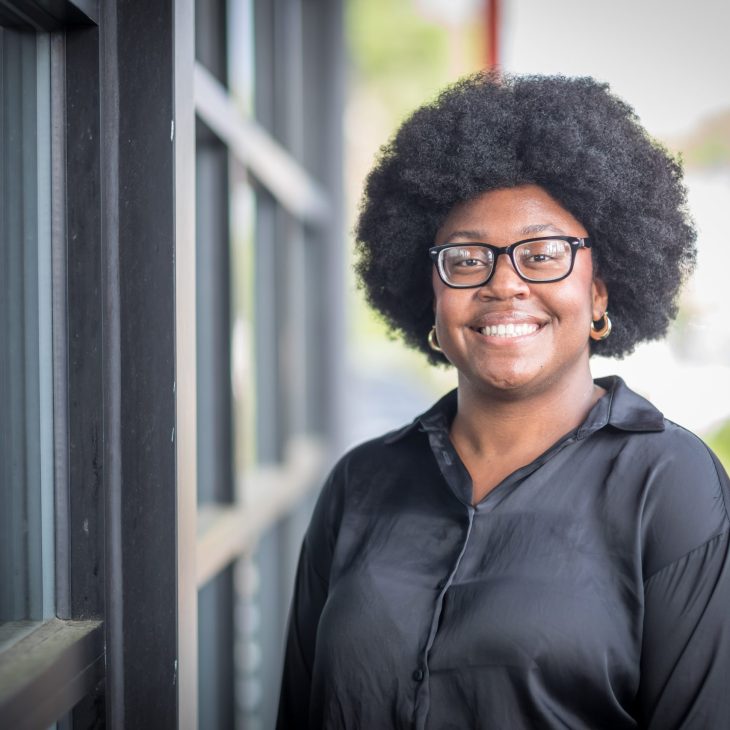
Kalilah Jamall
Kalilah Jamall (she/her) oversees volunteer services for a local agency in Jacksonville, Florida. In this role, she strengthens community relations between volunteers and her agency by creating a sense of connection and belonging through high quality engagement opportunities. Nearing ten years of experience across different industries ranging from governmental affairs, diversity and inclusion, and alumni relations, she utilizes her talents to help others build relationships with each other and craft stories that have lasting impact. She was a 2022 Interfaith Innovation Fellow through Interfaith America and uses her spare time as a consultant and facilitator for DEI initiatives.
